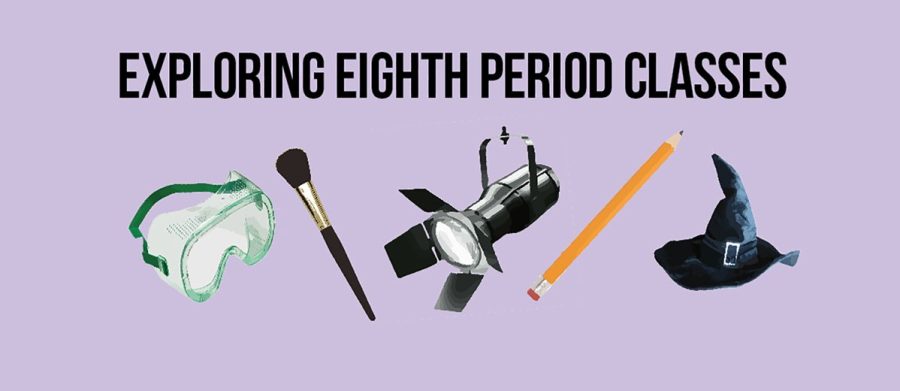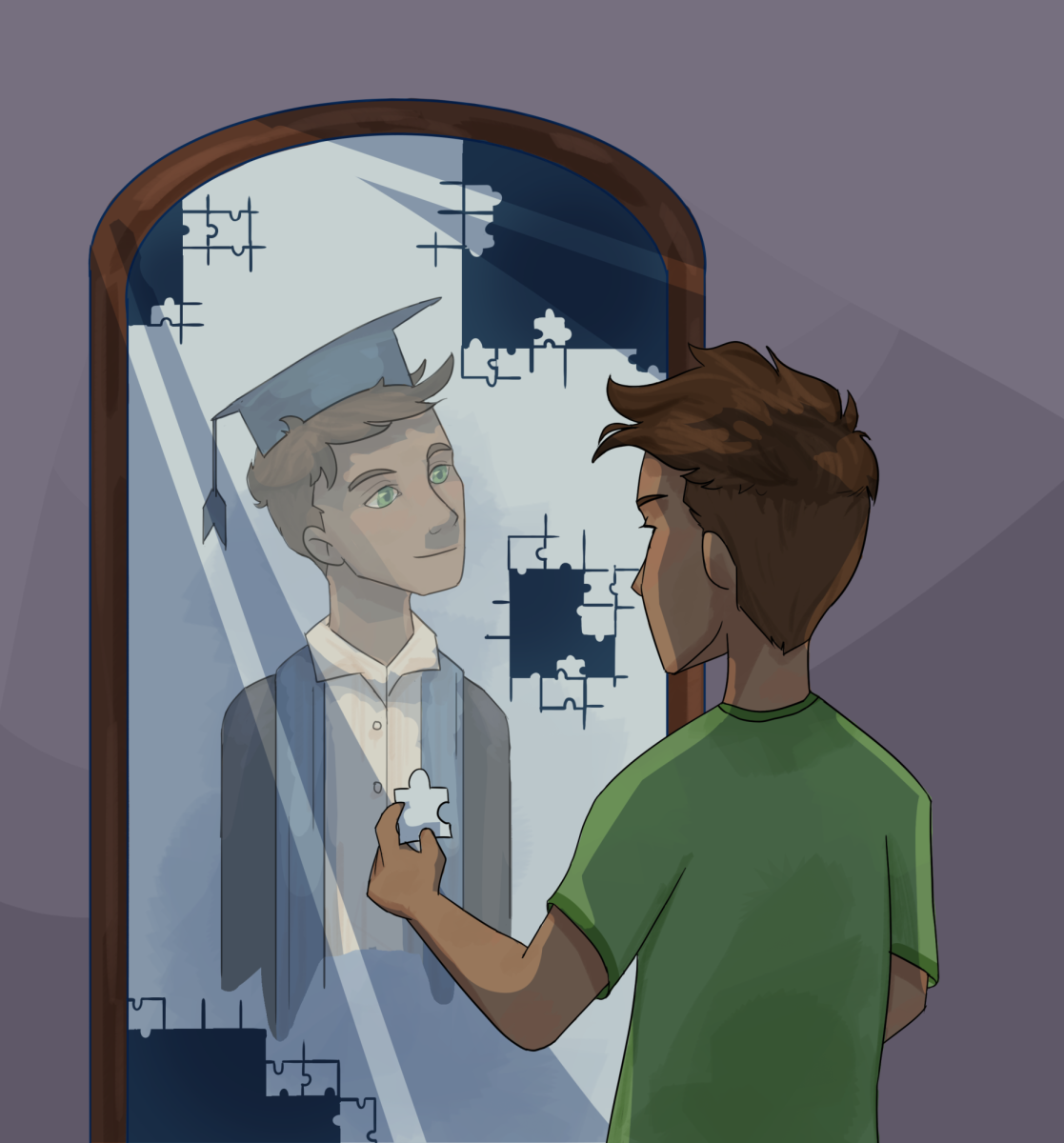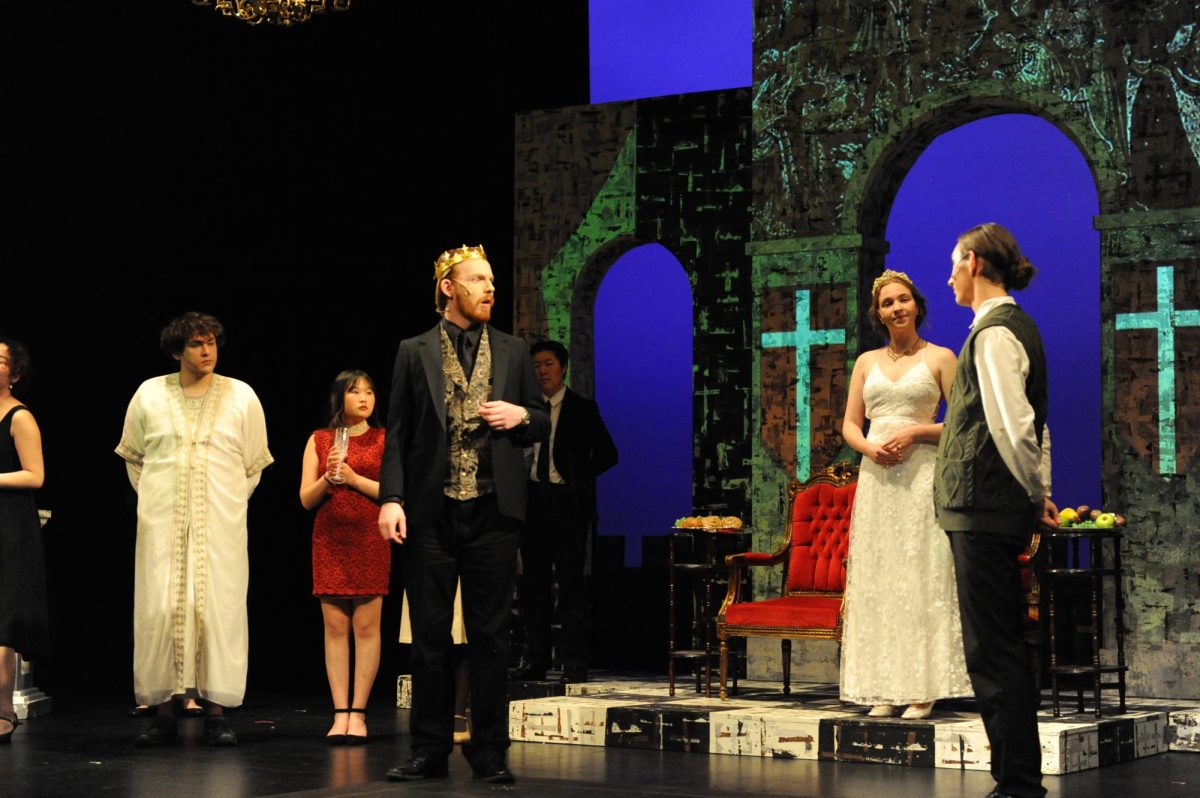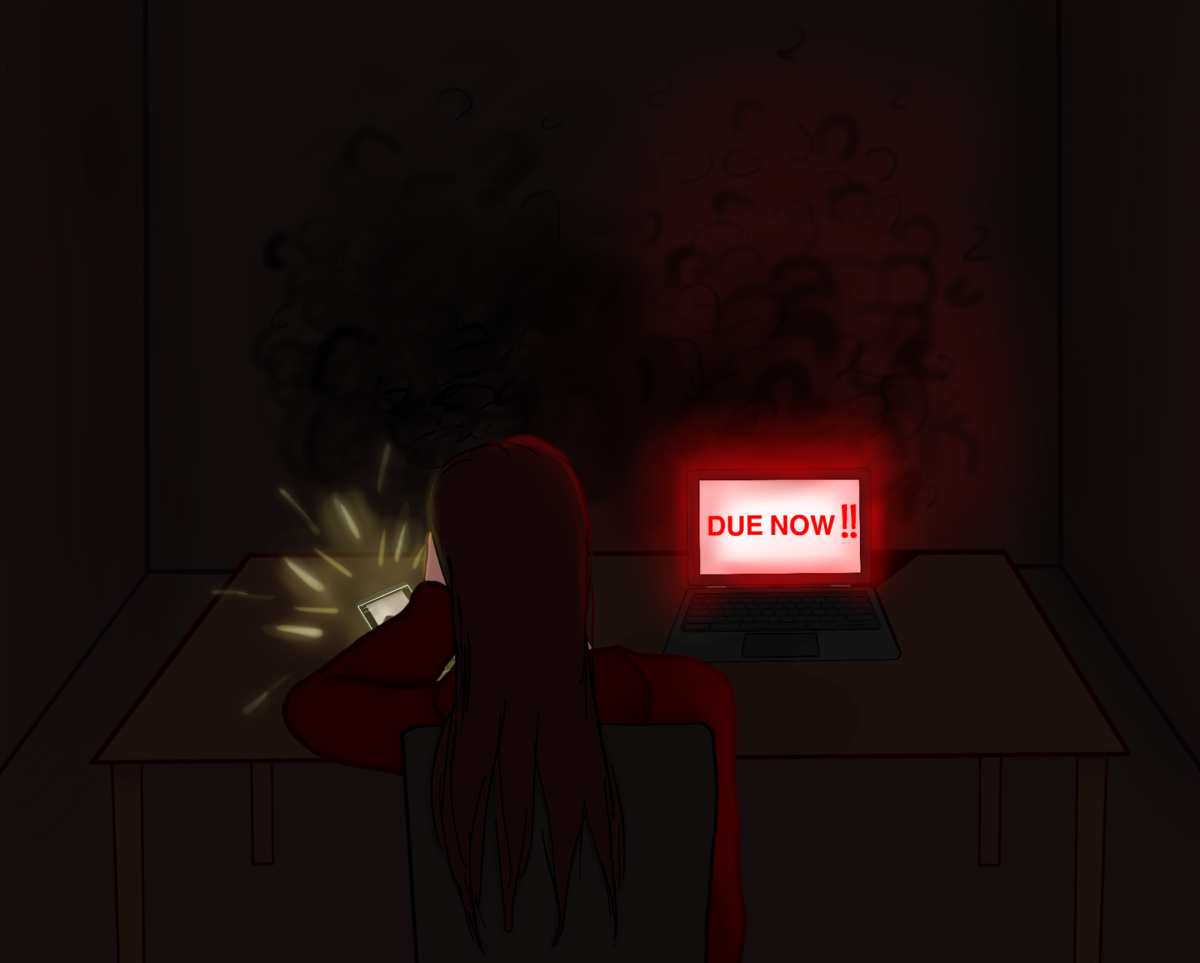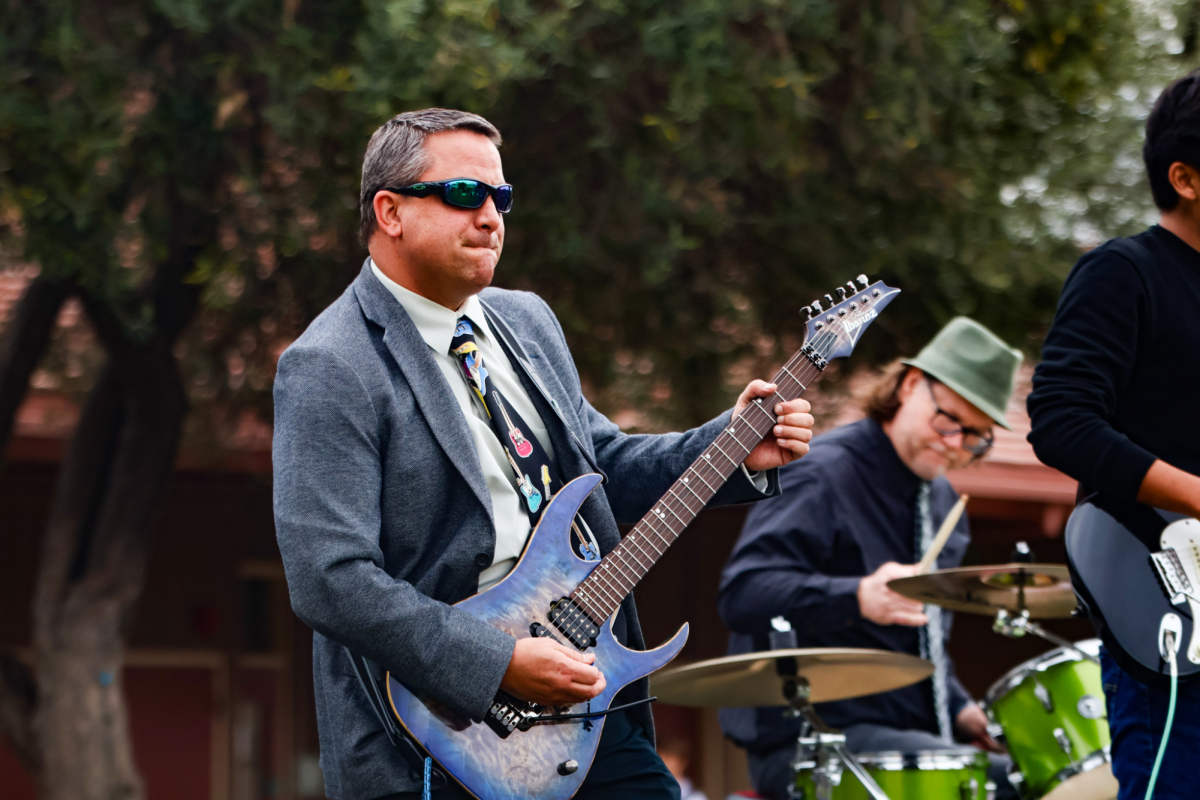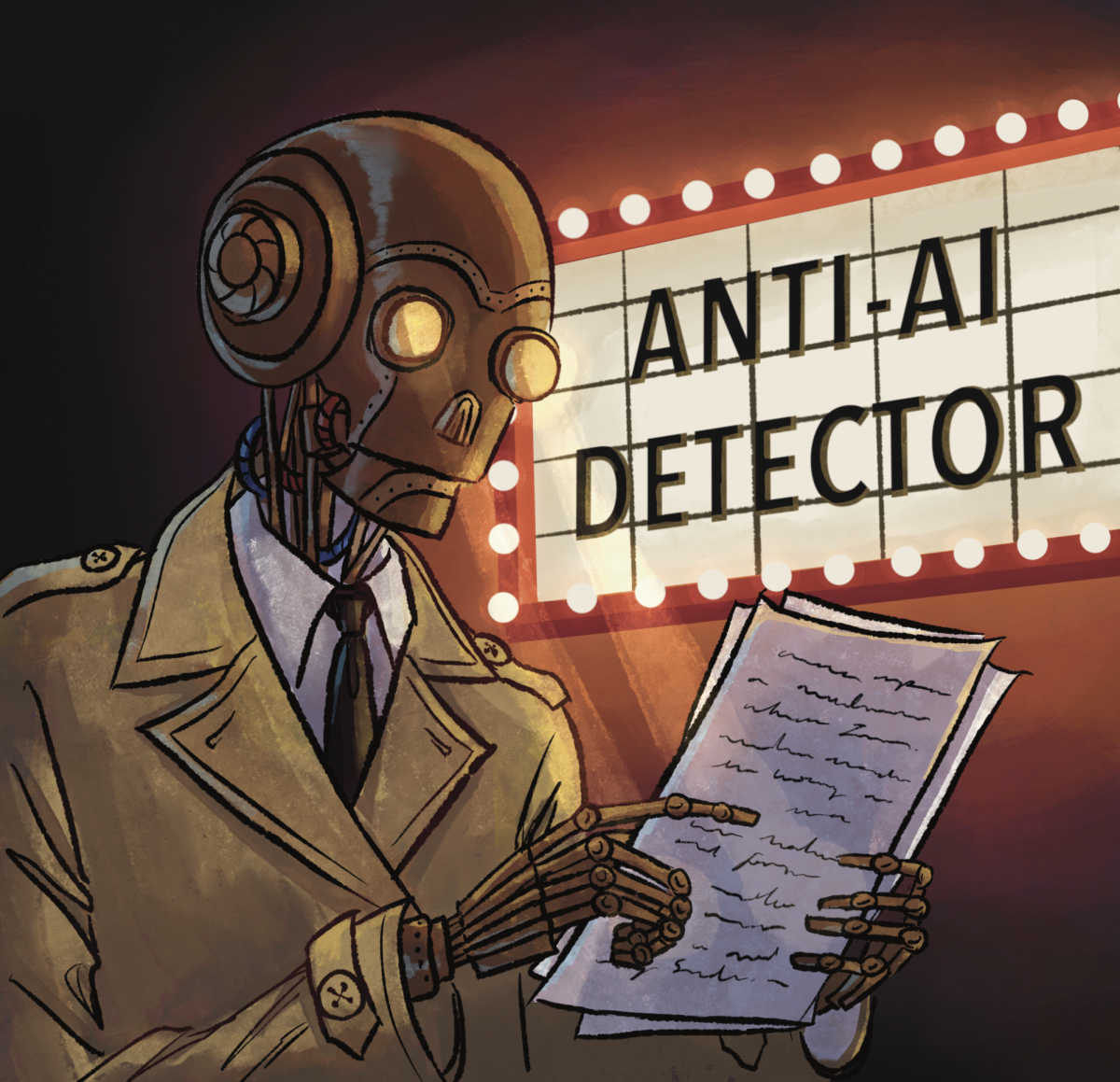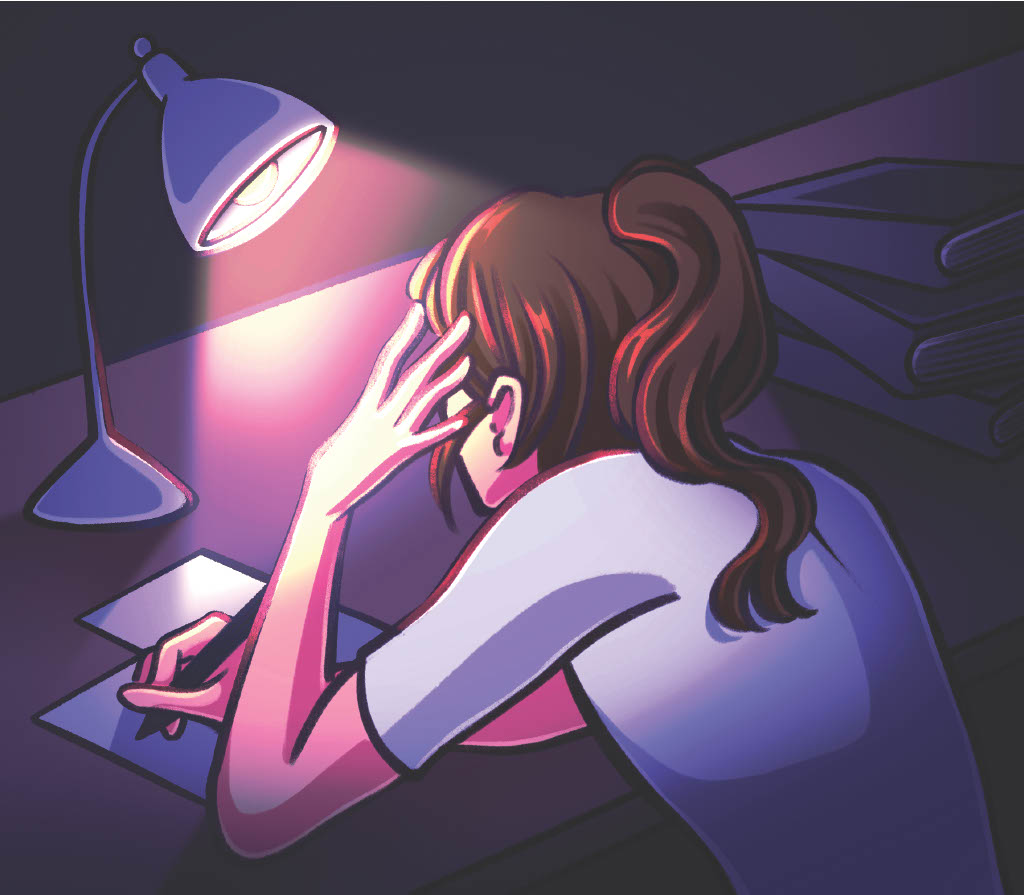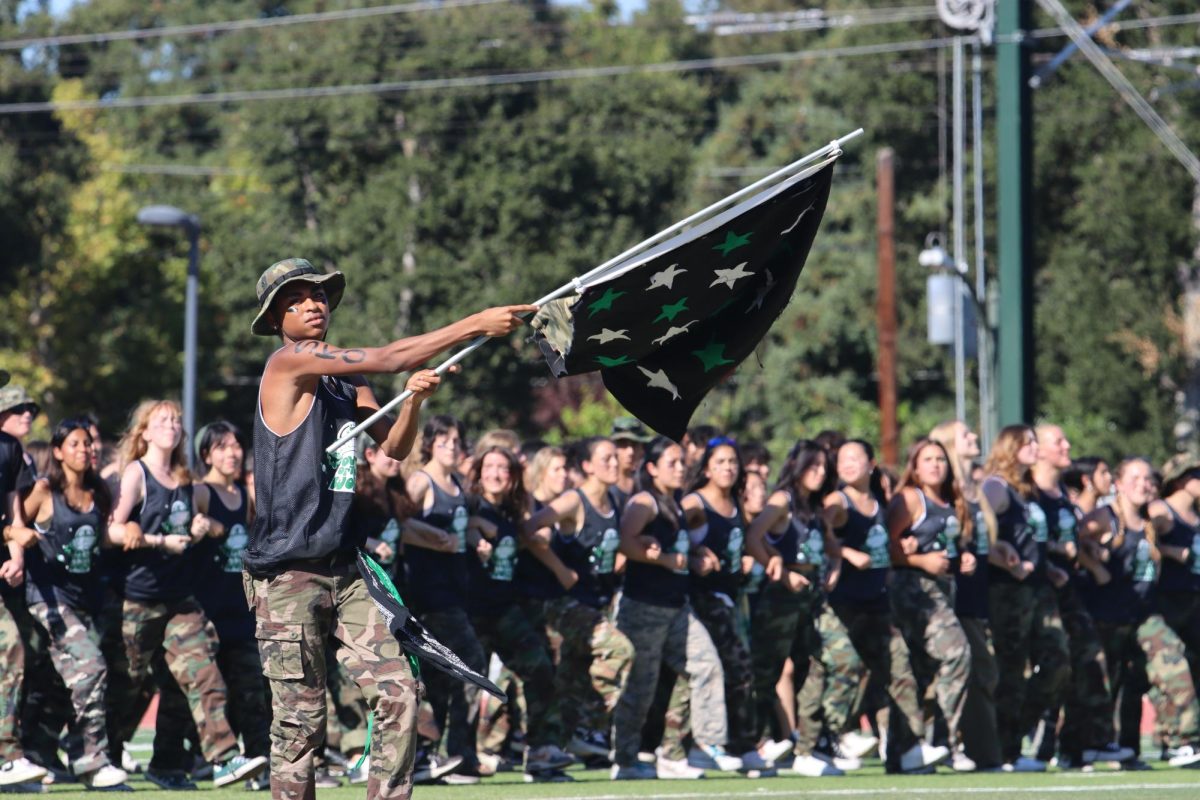Seconds after the final bell rings on Wednesday at 3:25 p.m., Palo Alto High School is flooded with students marching across the quad, darting between aisles of lockers and lingering in clumps around the bike cages.
While most students race home after an exhausting day, thirty-five students head back to class, their shoes thundering up against the stairs in the MAC as they reach their final period of the day: Advanced Authentic Research (AAR).
AAR is just one of 10 eighth-period classes offered at Paly including Stage Technology, Teaching Practicum and Work Experience.
Eighth period classes meet outside of the normal daily academic schedule. Some classes meet directly after school and others gather at 5 to 6 p.m.
There are a number of reasons that a class may be available eighth period; it might be a speciality class such as Jazz band or Advanced Vocals. Some are associated with work and research projects outside of school, such as Science Research Projects and AAR. However, many students are unaware of the unique opportunities that eighth period classes offer.
[divider]Stage Technology[/divider]
Teacher: Kathleen Woods Grades 9-12 Monday 3:30-5:30p.m.
One eighth period class, Stage Tech, has close ties to Paly’s theater program. While the actors are memorizing lines and learning choreography, students in Stage Tech are working behind the scenes to make sure each show runs smoothly.
“[The students] have an opportunity to learn about every area of backstage work,” said Stage Tech teacher Kathleen Woods. “That includes sound, lighting, makeup, costuming, props, video and it also includes some leadership roles such as assistant directing, being an assistant choreographer and dramaturgy which is the research into the background of a play or a playwright.”
Many people who work in the entertainment industry also visit the class to help teach.
“Each student gets a basic training in all areas and do tend to specialize, so if they’re on a crew they might be on the lighting crew, in which case they would learn how to hang and focus lights,” Woods said. “They might eventually work their way up to where they’re learning how to design the lights [and] how to run the lighting board.”
Although Stage Tech is not a regular class, it requires a fair amount of commitment.
“The workload varies depending on what you decide to do,” said senior Jessica Wu, who has participated in Stage Tech since her freshman year at Paly. “The requirement is 75 hours a semester, which is equivalent to what you’d do in a classroom.”
While it can be demanding at times, both Woods and Wu agree that Stage Tech is a class worth taking both academically and socially.
“It feels like a family,” Woods said. “Students develop friends and skills that they’re going to use for a lifetime.”
[divider]Advanced Authentic Research[/divider]
Teachers: Dr. Choe, Ms. Chute Grades 10-12 Wednesday or Thursday 3:30-4:15
In October of last year, Paly introduced a new eighth period course called Advanced Authentic Research (AAR). Over 70 students from Paly and Gunn enrolled in the class during its pilot year. This year, it is a U.C. approved course, meaning that students will receive a letter grade instead of a pass or fail.
Every week after school, AAR students check in with their assigned AAR teacher, who goes over weekly assignments. Students are expected to spend 60 hours per semester on research, which divides into roughly three to four hours of work per week. After passing the course, students receive 10 Career Tech Ed credits.
“You’re able to go more in depth into whatever you’re most passionate about. The freedom is a lot different from my other classes”
— Senior tara Madhav
“The idea behind [AAR] has always been to partner students with people in the community, but that doesn’t lend itself to the periods that exist in a school day,” said Deanna Chute, Paly’s AAR liaison. “Eighth period allows kids to meet in other ways and not just with a teacher during a certain class.”
AAR’s curriculum revolves around students as individuals in addition to each student’s processes of conducting research in a particular field. To encourage authentic research, students are paired with a mentor who is employed in a chosen field of work. Mentors guide students through development of a research question in addition to students’ research.
Senior Tara Madhav, who participated in AAR during its pilot year, enjoys the control that students have over their own learning.
“You get to choose what you study, which is something I really like,” Madhav said. “You’re able to go more in depth into whatever you’re most passionate about. The freedom is a lot different from my other classes.”
According to Chute, AAR provides students with new opportunities and experiences not offered in traditional classes.
“My fantasy is that every student has an experience like this where it’s driven by their own interests and they determine their own path,” Chute said.
[divider]Work Experience[/divider]
Teacher: Meri Gyves Grades 11-12 Tuesdays at 3:05-3:55 (Paly) or 6:00-6:50 (Gunn)
Work Experience is an eighth period course that allows students to earn Career Tech credit while working part-time. Students either find their own employment, or Meri Gyves, the instructor spearheading the Work Experience course, helps them find a job.
Students enrolled in Work Experience must attend weekly seminars either at Gunn or at Paly to learn about skills such as writing resumés and preparing for interviews.
“[Work Experience] teaches the soft skills that employers and colleges are looking for in the students,” said Gyves. “In today’s businesses, they don’t just want people that are focused, they want people that they can get along with. They are going to spend time with you, so it’s important that you have the soft skills to know how to deal with people.”
The class is both enlightening and practical, as these seminars provide students with a number of important life skills that would not be taught in any other course offered at Paly.
“The stuff that she’s teaching us, like how to prepare for an interview, how to write letters and stuff like that is genuinely, useful and you can apply it immediately,” said junior Angelina Wang.
[divider]Teaching Practicum[/divider]
Teacher: Elizabeth Brimhall Grades 11-12 During a regular period & Flex
Teaching Practicum is the go-to course for that one kid who always explains everything in your Chemistry class. While being a Teacher Advisor mostly consists of alphabetizing and grading quizzes, students enrolled in Teaching Practicum help lead underclassmen courses.
“[Teaching Practicum] is a class for upperclassmen, and they’re working with a mentor teacher in a classroom that’s typically underclassmen,” said Elizabeth Brimhall, who runs Teaching Practicum as well as teaching Biology at Paly.
“I decided to take Teaching Practicum not because I necessarily want to teach, but because I think that learning to teach will help me learn and understand how people work a lot more,”
— Junior Sarah Brodbeck
Teaching Practicum requires students to have a free period in their schedule for teaching a class. It is also mandatory for students to attend bimonthly seminars during Flex on topics such as new trends in education, learning styles and classroom safety.
“It’s called Teaching Practicum because there are two different aspects of the course.” Brimhall said. “There’s the practicum course part, where [students] are with their mentor teacher. Then there’s the seminar part, where they meet with me during part of flex time and learn what it’s like to be a professional educator.”
Unlike other eighth period classes, Teaching Practicum gives students the opportunity to step into a teacher’s shoes. This allows students to hone their leadership and communication skills simultaneously in an academic environment.
“I decided to take Teaching Practicum not because I necessarily want to teach, but because I think that learning to teach will help me learn and understand how people work a lot more,” said junior Sarah Brodbeck. “I love to direct [in theater,] so hopefully it will help me improve on that part.”

